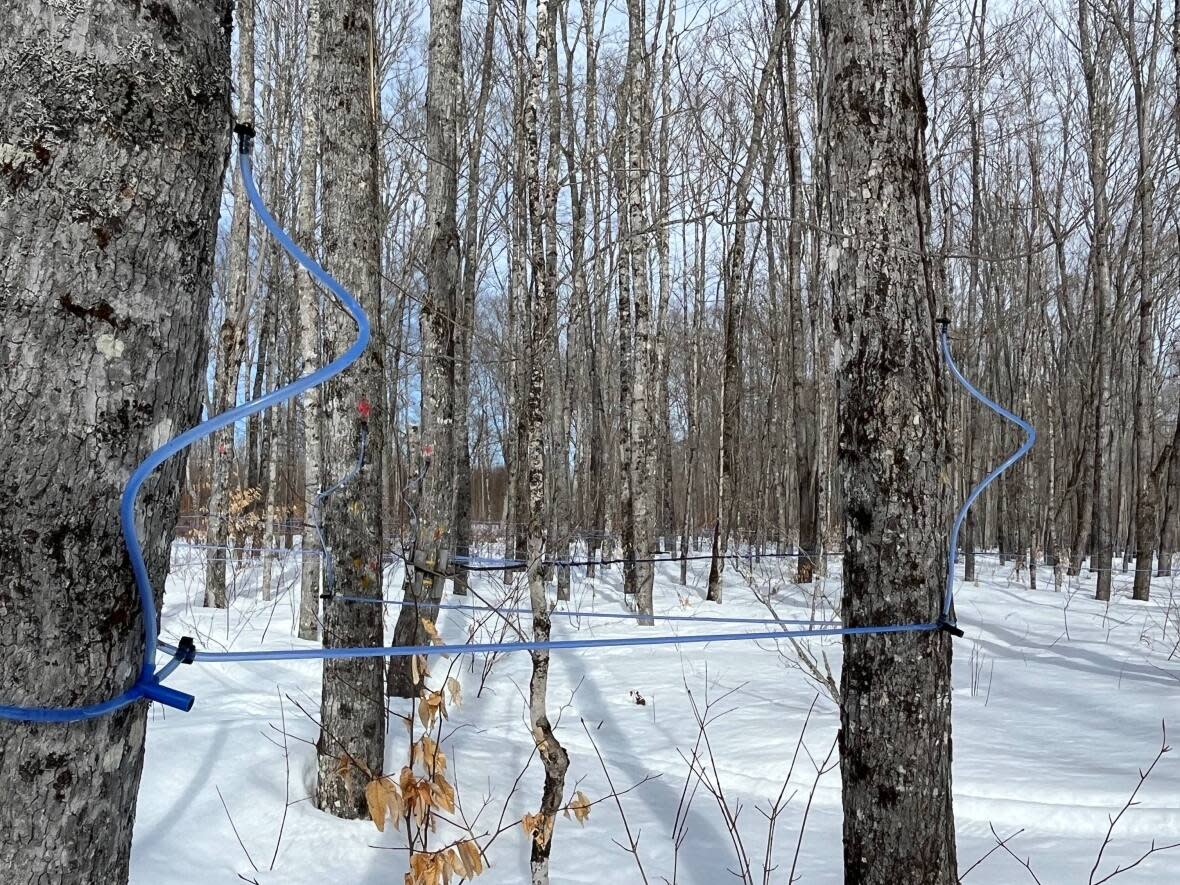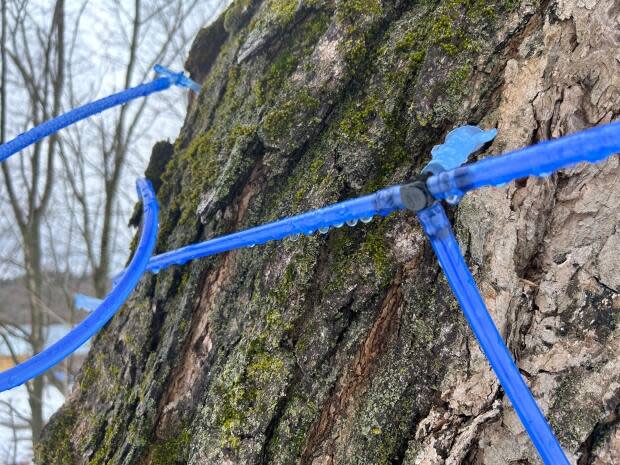Quebec maple syrup producers say they need more public land for production to meet demand

Maple syrup producers across Quebec say they're impatiently waiting for a plan from the provincial government that would allow them to use more public land for production — a plan they say is a year and a half overdue and more necessary than ever to meet growing demand.
Last year, Quebec produced a record 211 million pounds of maple syrup. As demand soars, the Quebec Maple Syrup Producers (QMSP) says increased production will require the use of more trees being tapped on government land.
"Currently, 20 per cent of maple syrup is produced on public land. We would like to see 30 per cent within the next 60 years to meet our needs," said Joël Vaudeville, director of communications for the QMSP.
He said this represents about an additional 200,000 hectares.
Eighty-five per cent of the maple syrup produced in Quebec is exported, with the province producing about 72 per cent of all the maple syrup in the world.
"From 2020 to 2021, we had a 20 per cent increase in exports; from 2021 to 2022, another 20 per cent. Operating on public lands is essential to support this growth," said Vaudeville.

Producers say the industry could fall short thousands of litres of syrup if the government doesn't step up soon.
According to producers, development potential on Crown land can be found in the Outaouais, Laurentians, Eastern Townships as well as on the Gaspé Peninsula and in the Lower Saint Lawrence region.
'We need a clear commitment'
Maple syrup producer Justin Plourde manages 37,000 taps, 7,200 of which are on public land in the Rivière-Bleue area of Témiscouata in the Lower Saint Lawrence region.
He says public lands allows him to develop larger maple groves. "On private land, it is difficult to have a large number of trees in one place and the price of lots has exploded," he said.
Plourde is hoping to add 10,000 more taps on public land starting this fall, but his project will depend on the government's constraints.
He says he's been waiting 18 months for a clear plan from the Quebec government, expressing his disappointment with Maïté Blanchette Vézina, the Minister of Natural Resources and Forestry, who is also the minister responsible for the Lower Saint Lawrence region.

"It's fine when sugar time comes to make a small statement and say that we are proud of maple syrup producers … but here, we need a clear commitment from our minister."
In a statement, a spokesperson for Blanchette Vézina's office said in 2021, the ministry made about 24,000 hectares of public land available for maple producers to keep up with demand, and about 40,000 more are promised.
"Harmonization of uses is an unavoidable issue when it comes to the public forest. This is why we must take the time to do it right," the statement reads.


